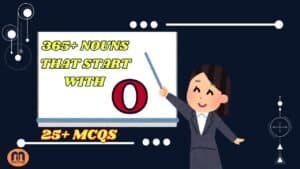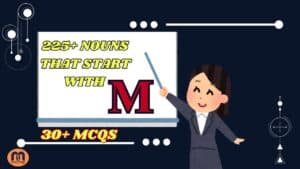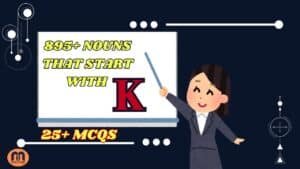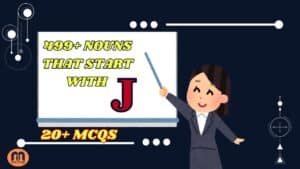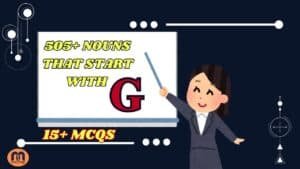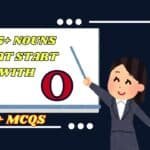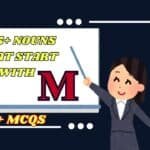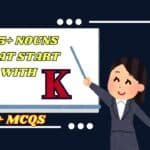Verbs That Start With G: Verbs are the backbone of every sentence, bringing action, movement, and life to communication.
Whether you’re writing an essay, crafting a story, or simply trying to enhance your vocabulary, knowing a wide variety of verbs is essential.
One often overlooked letter in the English alphabet is “G.” While verbs beginning with “G” may not immediately come to mind, they can add richness and diversity to your writing.
In this article, we’ll explore over 315+ verbs starting with the letter “G,” and how they can elevate your language skills. From basic actions to nuanced expressions, these verbs offer endless possibilities for writers, speakers, and learners of English.
Let’s dive in and see how these verbs can improve your communication.
Why Are Verbs So Important?
Before we jump into the list, it’s important to understand why verbs matter. Verbs do much more than describe actions they set the tone of a sentence, convey emotion, and create a connection with your audience.
- Action: Verbs can describe physical actions (e.g., “gather,” “go”) or mental processes (e.g., “guess,” “grasp”).
- Mood: They help convey urgency, calmness, frustration, or joy.
- Connection: Verbs are essential for engaging your audience. By using vivid, precise verbs, you keep your writing dynamic and interesting.
A large and diverse verb bank can add texture to your writing, transforming simple phrases into compelling, memorable sentences.
A Comprehensive List of Verbs Starting With “G”
Here’s an extensive list of verbs that start with the letter G, divided into categories to make them more useful for various writing contexts.
Action Verbs (Physical and Mental)
Action verbs are those that describe an action whether physical or mental. These are crucial for storytelling and conveying both literal and figurative activities.
- Gasp
- Glide
- Grasp
- Glean
- Grin
- Gamble
- Glare
- Grumble
- Groan
- Glow
- Grate
- Grapple
- Glance
- Gush
- Glint
- Glare
- Gripe
- Grind
- Gawk
- Guzzle
- Gloat
- Gag
- Galvanize
- Guffaw
- Gamble
- Gravel
- Grit
- Growl
- Grill
- Giggle
- Grovel
- Glisten
- Grind
- Grip
- Grouse
- Glorify
- Glimpse
- Grizzle
- Glisten
- Galumph
- Grouch
- Glide
- Grow
- Gasp
- Graft
- Glitch
- Grunt
- Gallop
- Grimace
- Garnish
- Go
- Gaggle
Communication Verbs
These verbs are essential for conveying information, ideas, or emotions to others. Whether you’re speaking, writing, or conveying non-verbal messages, these verbs help articulate your thoughts.
- Gossip
- Grumble
- Grill
- Glorify
- Gleam
- Glint
- Gibe
- Gesture
- Grumble
- Glare
- Giggle
- Gush
- Gossip
- Glorify
- Glimpse
- Gag
- Gratify
- Gibe
- Glide
- Grin
- Grumble
- Groan
- Guffaw
- Glance
- Grill
- Gallivant
- Gratify
- Gibber
- Grimace
- Gush
- Glare
- Glitch
- Glorify
- Gibber
- Grumble
- Grin
- Gloam
- Gist
- Gloat
- Gander
- Glimpse
- Glorify
- Gaze
- Gurgle
- Glimmer
Emotional and Sensory Verbs
These verbs are key for expressing feelings, reactions, or sensory experiences. They help evoke emotions and paint vivid pictures of our physical and emotional states.
- Glow
- Grieve
- Giggle
- Grin
- Gloat
- Glance
- Grimace
- Glare
- Grumble
- Guffaw
- Glint
- Gape
- Grin
- Groan
- Grovel
- Glisten
- Glory
- Grunt
- Gasp
- Grimace
- Glow
- Gargle
- Grimace
- Grieve
- Grumble
- Grouse
- Glide
- Glimmer
- Grumble
- Gaggle
- Gloat
- Giggle
- Glisten
- Gasp
- Glimpse
- Glitter
- Grief
- Gasp
- Growl
- Grovel
- Gladden
- Grieve
- Grimace
- Glare
- Glisten
- Grunt
- Gag
- Giddy
- Glint
Movement and Motion Verbs
These verbs focus on physical movement and describe the way people or objects move through space. They help to describe both fast and slow movements, as well as direction and manner.
- Go
- Gallop
- Glide
- Gyrate
- Grind
- Glide
- Gallivant
- Gallop
- Gust
- Glide
- Grimace
- Gravel
- Graft
- Glimpse
- Gleam
- Grouse
- Grind
- Gleam
- Grumble
- Gaggle
- Glide
- Go
- Grin
- Gait
- Grape
- Grouse
- Grit
- Grill
- Glint
- Grimace
- Gawk
- Grunt
- Groan
- Gallop
- Grind
- Go
- Grill
- Gravel
- Glisten
- Glide
- Grasp
- Gamble
- Grimace
- Gallivant
- Gyrate
- Gurgle
- Grimace
- Grin
- Glare
- Grovel
Verbs of Creation and Transformation
These verbs describe actions that involve making, changing, or transforming something. Whether you’re building, altering, or creating, these verbs can help express a process of change.
- Generate
- Graft
- Grind
- Grow
- Glisten
- Glorify
- Grimace
- Glint
- Glide
- Grill
- Grasp
- Glean
- Gravitate
- Graft
- Grind
- Go
- Galvanize
- Grumble
- Gush
- Grate
- Glide
- Glimpse
- Grin
- Grate
- Grind
- Gravitate
- Glow
- Grimace
- Glisten
- Grimace
- Graft
- Garnish
- Glaze
- Glisten
- Grit
- Grasp
- Go
- Grill
- Grumble
- Glorify
- Gravitate
- Grow
- Glare
- Grimace
- Gallop
- Grate
Glimpse of Action with Powerful G Verbs
Action verbs are the lifeblood of vivid storytelling. Whether you’re narrating a thrilling chase scene or describing a quiet moment of reflection, using dynamic action verbs can make your writing more engaging. Verbs beginning with the letter “G” offer a wide range of movement, expression, and emotion, which will help bring your sentences to life.
- Gasp
- Glide
- Grasp
- Gleam
- Grin
- Gallop
- Glare
- Grumble
- Groan
- Glimpse
- Gape
- Glint
- Grate
- Garnish
- Grovel
- Glitter
- Grill
- Grip
- Gravel
- Grizzle
- Grit
- Grin
- Gush
- Gawk
- Gamble
- Grill
- Glimmer
- Gravel
- Growl
- Glance
- Grimace
- Gallivant
- Guffaw
- Grimace
- Grin
- Glance
- Glitch
- Grunt
- Guzzle
- Graft
- Grieve
- Glimpse
- Glisten
- Glare
- Glide
- Graft
- Grill
- Glitter
- Gallivant
- Grouse
- Grumble
- Gaze
- Grind
- Gloat
- Glimmer
- Groan
- Glint
- Gasp
- Giddy
- Grasp
- Go
- Glance
Great G Verbs to Transform Your Writing
Using diverse verbs can transform ordinary sentences into extraordinary ones. “G” verbs, in particular, can provide a fresh, engaging way to describe actions, emotions, and processes in your writing. By incorporating these verbs, you’ll create more vivid and compelling stories, essays, and conversations.
- Go
- Gallop
- Glide
- Grin
- Grimace
- Grumble
- Gape
- Glisten
- Gamble
- Grave
- Grill
- Gush
- Glint
- Glare
- Grieve
- Glisten
- Glimpse
- Grovel
- Grill
- Growl
- Grasp
- Glare
- Glimpse
- Gush
- Gawk
- Glisten
- Guffaw
- Groan
- Grate
- Gallivant
- Glow
- Grimace
- Gloat
- Gravitate
- Grin
- Glitter
- Gallop
- Gaze
- Grouse
- Grind
- Glare
- Grin
- Glimmer
- Gravel
- Grave
- Grit
- Glimpse
- Glimmer
- Grumble
- Guffaw
- Gasp
- Grin
- Glint
- Gaze
- Graft
- Grizzle
- Glitch
- Gravitate
- Go
- Glisten
- Grow
- Grill
- Gallivant
- Grit
Exploring Some Lesser-Known “G” Verbs
While common verbs like “go” and “get” are useful, exploring more unique or specialized verbs can bring a fresh feel to your language. Here are a few gems to consider:
- Guttle: To eat greedily or to consume something in excess.
- Gyrate: To spin or rotate quickly, often with an emphasis on rhythm.
- Grouse: To complain or protest about something trivial.
- Gibe: To make mocking or sarcastic remarks.
The Power of Context
One of the most important aspects of using verbs effectively is considering context. In different situations, certain verbs may carry more weight or suit your message better.
For instance, “glimmer” might be ideal when describing a faint light in a poem, while “grumble” is more fitting in a casual conversation about dissatisfaction.
How to Use “G” Verbs in Your Writing
Adding variety and precision to your writing is easier when you have a wide array of verbs at your disposal. Below are some practical ways to incorporate these verbs into your work.
Vivid Storytelling
- Example: Instead of saying, “He walked quickly,” you could say, “He galloped down the hallway in a hurry.”
- Why it works: This not only adds action but also conveys the intensity of the moment.
Enhancing Descriptions
- Example: “The sun began to glow as it set behind the mountains.”
- Why it works: The verb “glow” adds a layer of beauty and depth to the description, turning a simple sunset into a visual moment.
Adding Precision to Dialogues
- Example: “She grinned from ear to ear as the prize was handed to her.”
- Why it works: “Grinned” gives a more specific image of her joyful reaction compared to just saying she “smiled.”
Conclusion: Verbs That Start With G
The English language is full of possibilities, and verbs starting with “G” are an often-overlooked yet powerful tool in your linguistic toolkit.
From everyday actions to more specialized expressions, these verbs can refine your writing, add depth to your conversations, and help you become a more precise communicator.
So, the next time you sit down to write or speak, remember these verbs and how they can elevate your message.
Experiment with using them in your daily language, whether in storytelling, professional settings, or casual conversations, and notice the difference it makes.
Now, it’s your turn what “G” verb will you start incorporating into your language today?
MCQs: Verbs That Start With G
1. Which of the following verbs means to move smoothly and quietly, often in a graceful manner?
A) Gallop
B) Gasp
C) Glide
D) Grin
Answer: C) Glide
2. What is the meaning of the verb “grasp”?
A) To complain
B) To move at a fast pace
C) To seize or take hold of something
D) To shine with a faint light
Answer: C) To seize or take hold of something
3. Which verb describes a loud, harsh sound made as a reaction to discomfort?
A) Gaze
B) Groan
C) Grin
D) Guffaw
Answer: B) Groan
4. Which verb is used to describe a faint, reflected light that catches someone’s eye?
A) Grin
B) Glint
C) Gallop
D) Grieve
Answer: B) Glint
5. Which verb refers to talking about someone or something in a casual or idle manner, often spreading rumors?
A) Guffaw
B) Gasp
C) Gossip
D) Grumble
Answer: C) Gossip
6. The verb “gallop” is primarily associated with:
A) A quiet movement
B) An intense laugh
C) A fast pace, often with horses
D) A slow, smooth movement
Answer: C) A fast pace, often with horses
7. Which verb means to praise or elevate something to an idealized status?
A) Gaze
B) Glorify
C) Grin
D) Guzzle
Answer: B) Glorify
8. What does the verb “grumble” mean?
A) To move rapidly
B) To complain in a low, discontented way
C) To sparkle or shine
D) To gasp in surprise
Answer: B) To complain in a low, discontented way
9. Which verb best describes the action of laughing in a light, silly manner?
A) Guffaw
B) Giggle
C) Grin
D) Gasp
Answer: B) Giggle
10. Which verb refers to moving in a wandering, leisurely way, often for fun?
A) Gallivant
B) Grasp
C) Glee
D) Grind
Answer: A) Gallivant
11. Which verb would you use to describe someone looking with an intense, fixed stare?
A) Glance
B) Gaze
C) Grin
D) Gulp
Answer: B) Gaze
12. If someone is moving with little friction and effortlessly, they are most likely:
A) Giggling
B) Gliding
C) Grinning
D) Grumbling
Answer: B) Gliding
13. Which verb means to consume something greedily or excessively?
A) Gulp
B) Gaze
C) Grumble
D) Graft
Answer: A) Gulp
14. Which verb refers to making a low sound of discomfort, often as a reaction to pain or annoyance?
A) Groan
B) Gallop
C) Glisten
D) Grin
Answer: A) Groan
15. Which verb describes the action of making or changing something through a slow, grinding process?
A) Grit
B) Grin
C) Graft
D) Glimmer
Answer: A) Grit
16. What does the verb “glisten” describe?
A) To emit a faint light
B) To create a high-pitched sound
C) To give a quick look
D) To walk briskly
Answer: A) To emit a faint light
17. Which verb would you use to describe complaining or protesting about something trivial?
A) Gloat
B) Grit
C) Gripe
D) Grin
Answer: C) Gripe
18. What is the meaning of “gaggle”?
A) A loud laugh
B) A group of people or things moving together
C) To move at a fast pace
D) A type of joke
Answer: B) A group of people or things moving together
19. Which verb means to appear radiant or shine with reflected light?
A) Glare
B) Glint
C) Glow
D) Gawk
Answer: C) Glow
20. Which verb means to express intense pain or discomfort through sound?
A) Gasp
B) Grunt
C) Groan
D) Gallop
Answer: C) Groan
Read more knowledgeable blogs on Entry Mags


